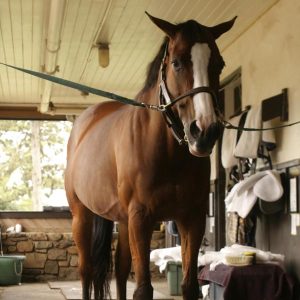
Reaction Times
Of all the domestic animals we interact with, horses have the fastest reaction time. Horses evolved with this trait as...
» View Article
Of all the domestic animals we interact with, horses have the fastest reaction time. Horses evolved with this trait as...
» View Article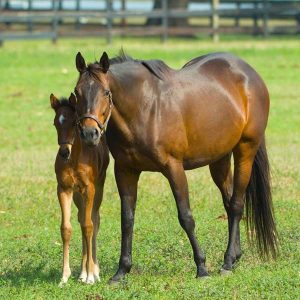
Elevate® and the breeding horse Vitamin E is an essential component of body-wide antioxidant defenses. These defenses play a vital...
» View Article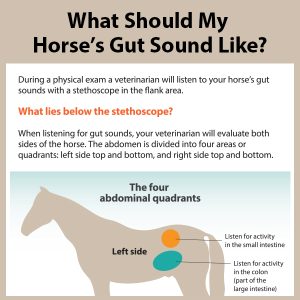
During a physical exam a veterinarian will listen to your horse’s gut sounds with a stethoscope in the flank area. What lies below the stethoscope? When listening for gut sounds, your veterinarian will evaluate both sides of the horse. The abdomen is divided into four areas or quadrants: left side top and bottom, and right side top and bottom.
» View Article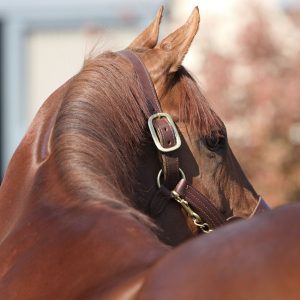
Does your horse struggle with dull, flaky hair coat? Are his mane and tail dry and brittle? The quality of...
» View Article
Inclement weather, new hay, traveling, competing – there are a lot of factors that impact your horse’s colic risk. Use...
» View Article
A horse’s spleen weighs about 15 to 20 lbs. One of its roles is to store red blood cells when...
» View Article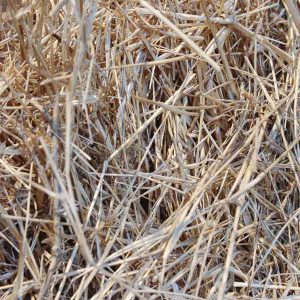
The most important thing to keep in mind regarding “carbs” is that there are different types of carbohydrates and the...
» View Article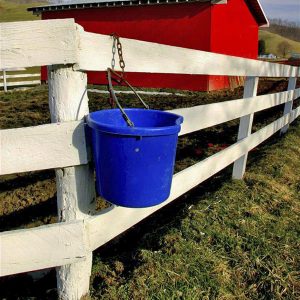
In a few easy steps you can set up a good feeding program: 1. Determine how much your horse weighs....
» View Article
Two studies were conducted at the University of California, Davis to measure effects of vitamin E supplementation on serum and...
» View Article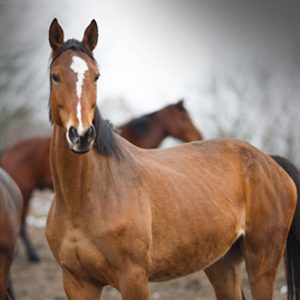
Horses that have demanding training or competition schedules, broodmares raising foals, and growing horses can expend a huge number of calories doing their jobs. They need energy and lots of it, but they need the kind of energy that won’t cause digestive upset or improper growth patterns.
» View Article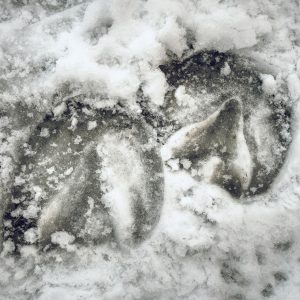
How much ice you get each winter and how you deal with it depends on where you live. Some stables...
» View Article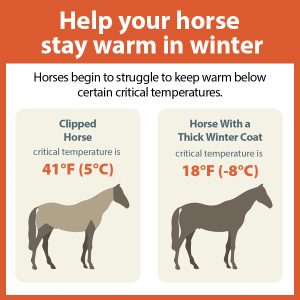
Horses begin to struggle to keep warm below certain critical temperatures. Clipped Horse - Critical temperature is 41°F (5°C) Horse With a Thick Winter Coat - Critical temperature is 18°F (-8°C) The easiest and most effective way to keep your horse warm when the temperatures drop is to feed additional forage.
» View Article
LEXINGTON, Ky.- The Equine Disease Communication Center, a leader in real-time and accurate information about infectious diseases, is proud to...
» View Article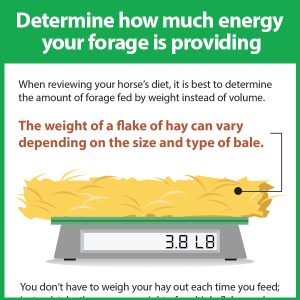
Click here to download a print version of this infographic. Text-only version of “Determine how much energy your forage...
» View Article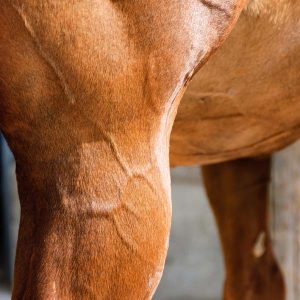
HYPP is an inherited muscle disease that disrupts normal muscle function. The genetic mutation interferes with the sodium channels that...
» View Article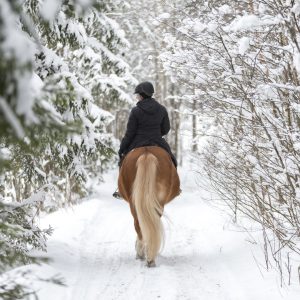
As the winter season approaches, it is time to evaluate your horse’s body condition score. It is important to make sure your horse begins winter in the best condition possible. If your horse has special needs it may be necessary to alter your feeding program during the winter months.
» View Article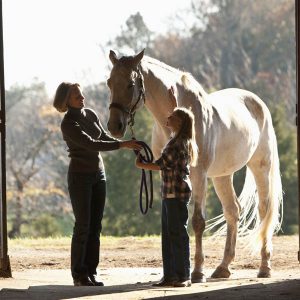
Eventually every horse gets to the point where it is time to retire, but when and how depends on the...
» View Article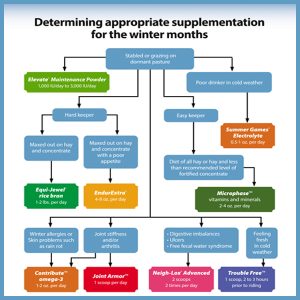
Worried about your horse staying healthy this winter? Targeted supplements can help! Check out our winter decision tree and find...
» View Article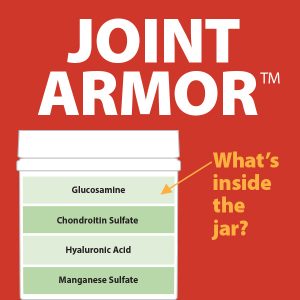
Click here to download a print version of this infographic. Text-only version of “Joint Armor™: What’s Inside the Jar” Joint...
» View Article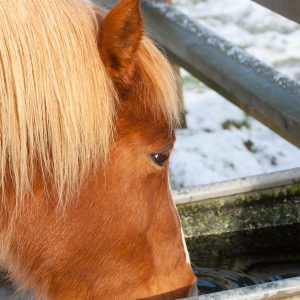
As the winter season approaches, it is time to evaluate your horse’s body condition score. It is important to make sure your horse begins winter in the best condition possible. If your horse has special needs it may be necessary to alter your feeding program during the winter months.
» View Article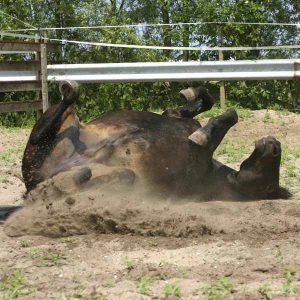
Gas colic is one of the more common types of colic and one of the least serious. It is caused...
» View Article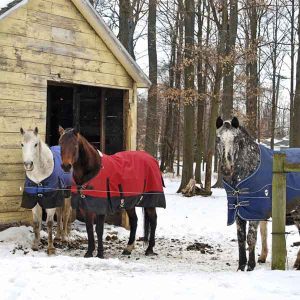
A study conducted in Sydney, Australia, revealed that house dust mites can take up residence in your horse’s blankets. House...
» View Article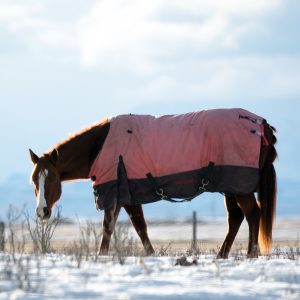
Winter is coming. Are you ready? 1) Have a good supply of hay. Ensure you have an adequate supply of...
» View Article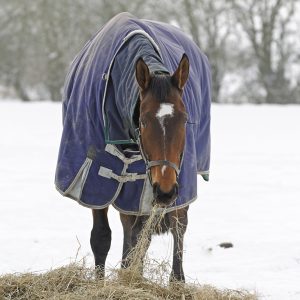
Horses begin to struggle to keep warm below certain critical temperatures. For a clipped horse, the critical temperature is 41°F...
» View Article
"*" indicates required fields